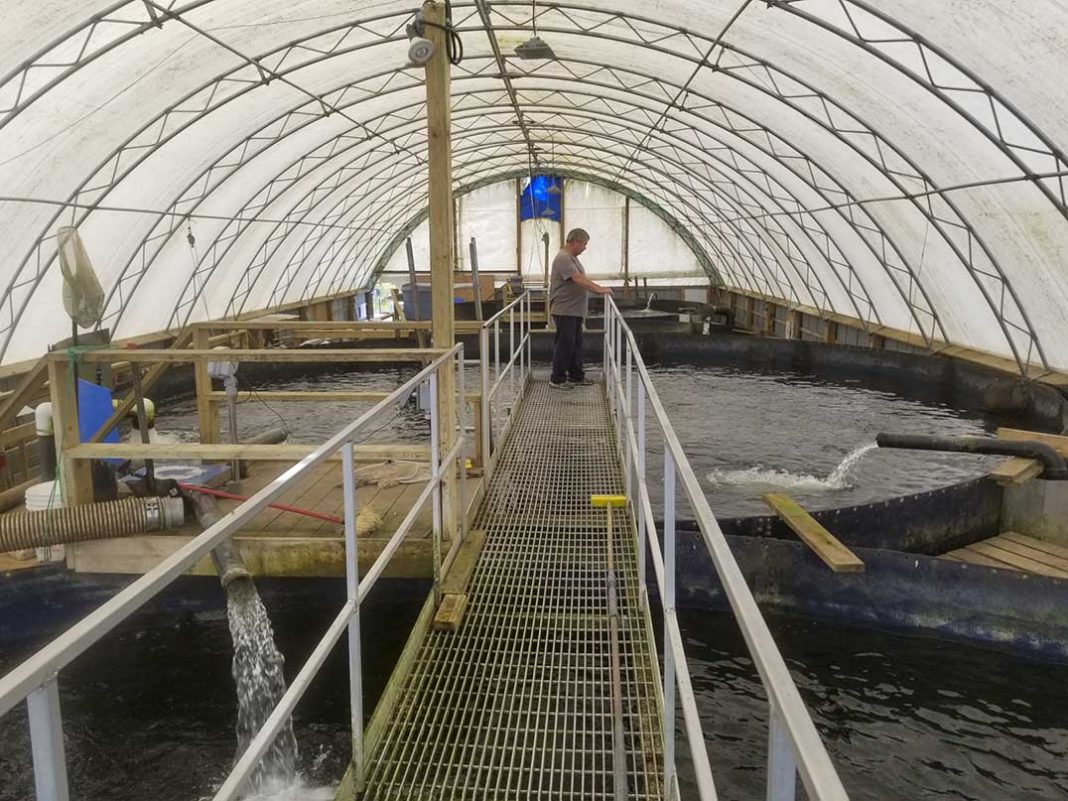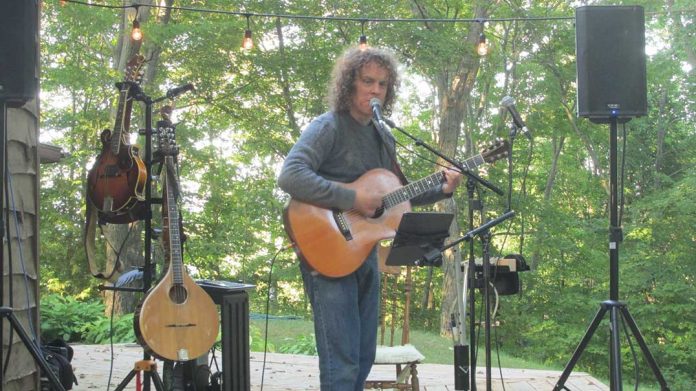MANITOULIN – The announcement last week that the province will allow longer fish farm licences, from the present five years to 20, along with standardized water quality testing being carried out at all sites, was welcome news for many in the industry.
“It is absolutely key for producers in providing stability for our industry in the long run to have longer licences,” said Mike Meeker of Meeker’s Aquaculture, reacting to the news provided by the province last week. “I’m really happy about this news for our operations on Lake Wolsey and for other producers on the Island and the province.”
Ontario is taking action to protect water quality in Ontario’s lakes while supporting an environmentally sustainable and prosperous fish farming sector as part of its Made-in-Ontario Environment Plan commitment to keep provincial waters clean and healthy, a release notes.
Ontario released its final policy paper on lake-based cage fish farming that helps provide business certainty and enables long-term investment in the sector by finalizing the provincial water and sediment quality objectives for how fish farms should be situated, sized and managed. It also sets standards for water quality in net-pen farms.
In addition, aquaculture licences will be extended from five to 20 years and net-pen farms will be able to extend land-use permits from five to 20 years.
With 20 year licences and leases, aquaculture workers will be able to get bigger loans, opening up new investment opportunities. RJ Taylor, co-owner of Cedar Crest Trout Farms in Hanover and managing director for the Ontario Aquaculture Association, said these changes will allow the aquaculture sector to grow exponentially, tap into international markets and ultimately soar.
Jeff Yurek, minister of the environment, conservation and parks, and Mike Harris, parliamentary assistant to the minister of natural resources and forestry, met with Mr. Taylor at his fish farm on August 29 to talk about the province’s fish farming policy and the industry’s contribution to Ontario’s economy.
“Ontario’s aquaculture sector brings jobs and prosperity to rural, northern and Indigenous communities across Ontario,” said Minister Yurek in a release. “Setting this direction will provide greater clarity and certainty for investment. It’s an important step in reducing barriers to industry growth and ensuring the industry continues to play an important role in providing our food, protecting our waters and strengthening the provincial economy for years to come.”
“Instead of five-year renewable licences, there will now be 20-year leases that we can apply for through the province,” said Mr. Meeker. “We’ve been asking for a 20-year term for the past 20 years or so. We have to review our licences with the MNRF in April 2020, and hopefully the next one will be in 2040.”
Mr. Meeker stressed, “we will still have to do very complete environmental testing (of the water quality); those results are reviewed every year; and we will need to go through stringent environmental testing programs on water quality, even more so now than the past.” He noted his business, “has never been cited for a non-compliance (since opening in 1986).”
“Ontario’s fish farmers put more than 100 million meals of delicious and healthy trout on Ontario dinner tables every year. Aquaculture brings jobs and prosperity to Ontario’s rural, northern and Indigenous communities,” said Mr. Taylor. “Our farms are certified and internationally recognized for their environmental stewardship and best management practices.”
“Healthy locally grown fish are important to both Ontario families and to our economy,” said John Yakubuski, minister of natural resources and forestry. “This policy supports Ontario’s abundant wild fish populations and a healthy cage aquaculture industry.”





